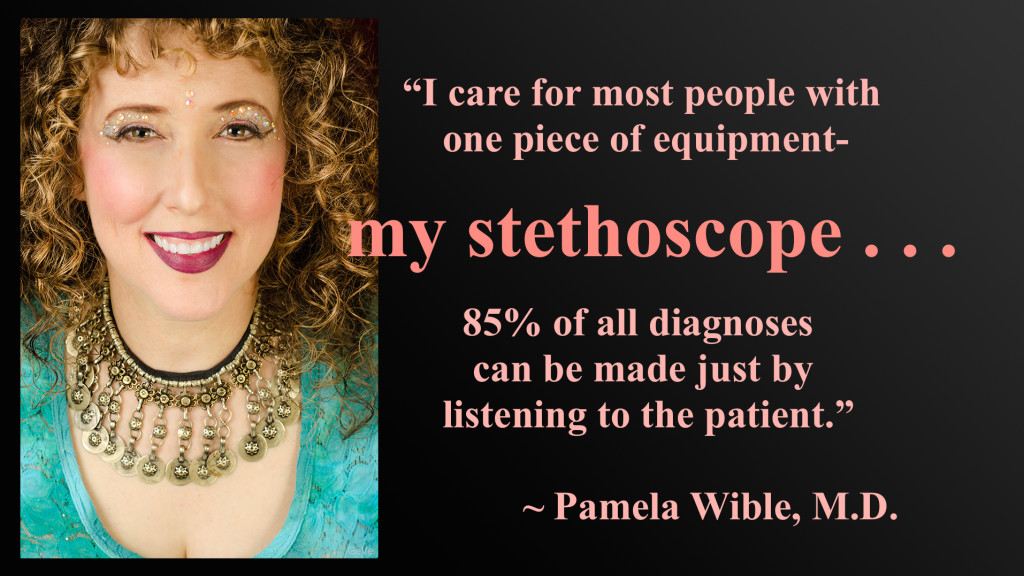
Just a friendly reminder . . . .
🙂 Pamela
***

I asked why physicians were dying by suicide. Here’s what they told me:
“I definitely graduated from med school with PTSD. It has changed me forever. My mom’s friend that I have known since I was born saw me for the first time since I went to med school and she [told my mom], “She has changed so much. Was it worth it?” I wish I could change back but I realize that I will never be the same again and it isn’t in a good way. We had two suicides and one murder—skull crushed with a bat—and one serving life in prison for murder during a delusional episode after not sleeping for almost a month. Yes I went to a hard-core school (old school kind of place). PTSD isn’t benign; it truly affects you to the core—it changes your brain.” ~ Doctor in Philadelphia
“I’m in my first year of practice outside of residency and I can’t begin to tell you how often I think of death. Not because I hate my life—I have a wonderful husband and family. But the pressures of daily life as a doctor are overwhelming. I work constantly! Even on my days off, I’m working. When I take a day off, I pay for it later by double the amount of work waiting for me. I have patients yelling at me when all I wanted to do was help. They try to fool me and manipulate me. Insurance companies deny my patients help, leaving me with no resources to help. My boss is a douche—unethical and dangerous. I want to build a relationship and do what’s right for my patients—but the company pushes me to see more and more patients in less and less time. I cry at work, I cry myself to sleep sometimes. I don’t feel depressed, and I know my life has value, but sometimes the thought of suicide is just to escape the pressure of the profession. It’s not like I can realistically give up the job, my calling. I’m neck deep in debt and will never be able to pay it back if I leave the profession.” ~ Michelle
“I didn’t realize that so many others in the field suffered as I do. I have tried to get help many times but it’s hard because I don’t think that anyone takes me seriously and I don’t think I can be completely honest with anyone without major repercussions. I don’t have any friends to socialize with and all my relationships have failed. I come from a background where I was the first to get a higher education so they think that I should be elated to just have MD behind my name and tell me to suck it up. I don’t want to possibly lose my license because honestly I love taking care of patients and sometimes that is the only time I get a few moments of happiness. But things have just been so bad for me that I have resorted to just doing locums [fill-in work] so I can isolate myself because sometimes I can’t stop the tears. I have tried a few times and the last time probably would have worked but at the time I was lying there looking at the dog I had then who was curled beside me nudging me to get up. Somehow I drove to the ER although severely hypotensive where I was hospitalized and they chalked it up to the fact that I had not really been eating or drinking for weeks. I no longer have that fur companion so I find myself alone and thinking about an escape a lot.” ~ Dee
“My attending took great pleasure in bullying the students, and I saw real pathology among fellow students who felt like they couldn’t ‘take it’ anymore, and complained of ‘PTSD.’ I am not currently practicing medicine (for reasons quite possibly stemming from the fact that I never could find adequate mental health care).” ~ Anonymous
“I am a third-year medical student. I have done very well in both my coursework and national boards. I have publications, research. On paper, I am successful. Yet I find myself thinking about killing myself frequently. Walking into traffic, jumping through the window, just dying in the course of a normal day. Miserable thoughts. I went to the school psychologist to be fixed; I was referred to the school psychiatrist, who looked just as broken as I felt. He offered me antidepressants, if I ‘wanted to take them.’ It doesn’t make sense. I never felt this way before medical school. I loved, I thought, I reflected. I enjoyed being creative, yet now I’m chained by procedure, bureaucracy, and paperwork. There are no creative solutions to problems, there is no effective effort to improve the system except from big top-down initiatives of whatever hierarchy you’re subject to. It’s maddening. I used to watch the stars and smile. I volunteered. I ate well and exercised. I enjoyed playing with children. Now I’m finding a sort of perverse pleasure in patients’ pain; I recognize this as sadistic. I’m shocked. I’m revolted at how far my soul has degraded. It’s insane. I’m chronically sleep deprived. I can’t think or learn when I don’t sleep. I can’t smile without ulterior motive. I’ve confided in my family, who don’t understand the demands or the situation and have told me that ‘it’s my decision to feel sad.’ The [professors] don’t teach; half of them treat us as annoyances. Learning and healing both got lost somewhere. The good teachers leave or are ground down. I’m full of hate and sadness. I’m not sure why I’m still here, but I am. I feel like an echo of myself.” ~ John
“I am in my final year of medical school and have had several classmates attempt suicide over the course of my degree. I love medicine and I love people, that’s why I chose this profession. Sometimes when awake studying at 3 am, or watching an autopsy, or witnessing highly emotional scenes at the hospital, I feel incredibly alone. Sort of like I’m not a part of humanity! It deeply saddens me that classmates and colleagues feel they are unable to seek help for their problems, and I hope there is more research in this in the future.” ~ Julie
“I thank you for the website and the many comments by people. I qualified in the UK and things here appear to be the same. I have several colleagues who have committed suicide over the years, and I feel lucky to have survived myself, for all the reasons you describe. I am particularly taken by the PTSD image. Yes indeed I was traumatized in medical school and it continues to happen, but we get accustomed to it, to the point of becoming an abused class.” ~ Christian
For every doctor who dies by suicide, friends, family, and patients are left to wonder why. “I am still in a state of shock hearing that my brilliant, loving, compassionate, successful, well-respected, honest, hard-working physician committed suicide this past week. Pressure from the changing medical community/insurance/had forced him to close his 30-year practice and he went home and shot himself in the head. The letters keep coming in of how many people loved him, were healed by him, and admire him. What a tragic end to a successful career. Everyone is asking why. He was the best of the best, surgeon and specialist, nice home, nice family and now he is gone. Totally tragic.” ~ Diana
These letters have now been published in a book: Physician Suicide Letters—Answered. Many are recited in this TEDMED talk:
If you are moved by these letters, please watch and share the TEDMED talk above and my other TEDx talk on physician suicide. Read more letters here. Thank you for caring. Pamela
***
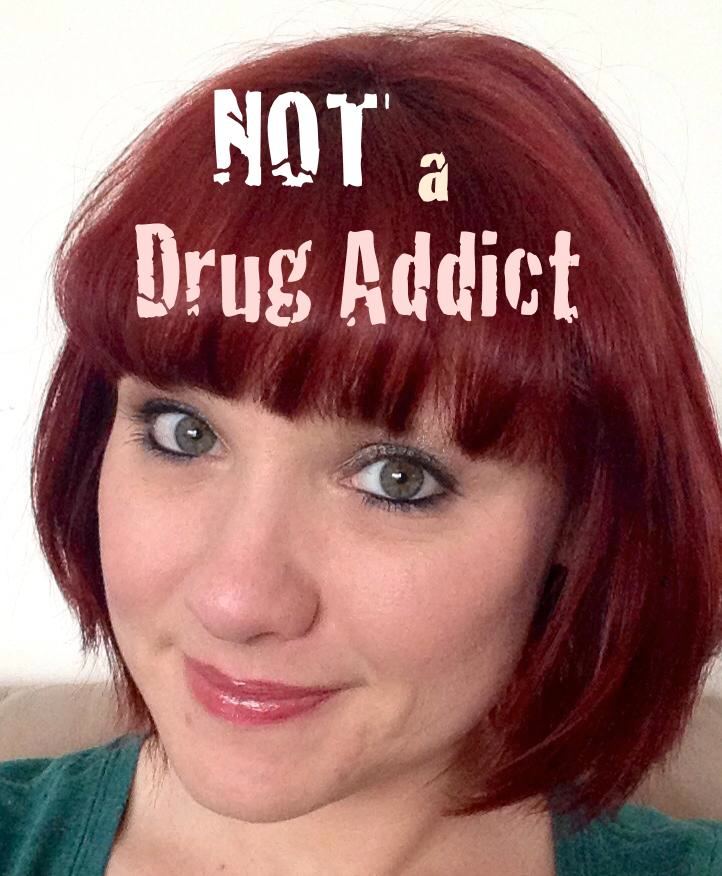
Fact: Doctors want to help people.
Fact: Some people take advantage of doctors.
A doctor in Oregon shares this case: “I had an old man with cancer. He kept complaining of pain as I was increasing his opiate pain medication, OxyContin. I was at, I forget, about 40 mg four times a day or some fairly substantial dose. I ran a urine drug test. Negative for oxycodone, which was what I was giving him. Turns out his caregiver, who was the old man’s son, by the way, was stealing every single narcotic pill I was prescribing and selling it. OxyContin is a dollar a mg on the street. So, the scumbag son, stealing his cancer-ridden father’s pain medicines, was clearing $40 a pill, 4 times daily, 365 days a year . . . 40 x 4 x 365 = $58,400. . . Potential of nearly 60 grand a year doing this to his father. And yes, I called the police and adult protective services.”
Fact: Oregon is #1 in the nation for non-medical abuse of prescription painkillers.
Oregon is a progressive state. We’ve been on the forefront of compassionate use of pain medication. We were the first state to decriminalize marijuana and among the first to allow its use for medical purposes. Oregon was the first to legalize physician-assisted suicide and to require a prescription for pseudoephedrine to decrease meth production.
“But why are we #1 for abuse of painkillers?” I asked at a mandatory course I attended on the safe use of opioid pain medication. I learned that being so compassionate with prescription painkillers can backfire. Sometimes a doctor’s compassion is met by indifference, manipulation, and lies. After these experiences, even the most caring doctors start to distrust patients.
Leila, a patient, shares: “I was brought into the ER by ambulance after a car accident. I had been left on the backboard for five hours, and I [previously] had major back surgery. I was in so much back pain that I was crying. I was only treated for whiplash. The next day, as I was screaming in pain, my husband took me back to the ER, where I was treated as a drug addict and told I couldn’t get anything for my pain.”
Fact: Some patients need pain medication.
Fact: The U.S. is 4.6% of the world’s population, yet we consume 80% of opioid painkillers. And we’re still in pain. Lots of Leilas receive inadequate pain therapy. While lots of scam artists make a living off prescription painkillers.
Anyone have a quick and easy solution?
Pamela Wible, M.D., is a family physician in Eugene, Oregon. She believes patients and physicians need to get real with each other. Watch her TEDx Talk “How to Get Naked with Your Doctor.”
***
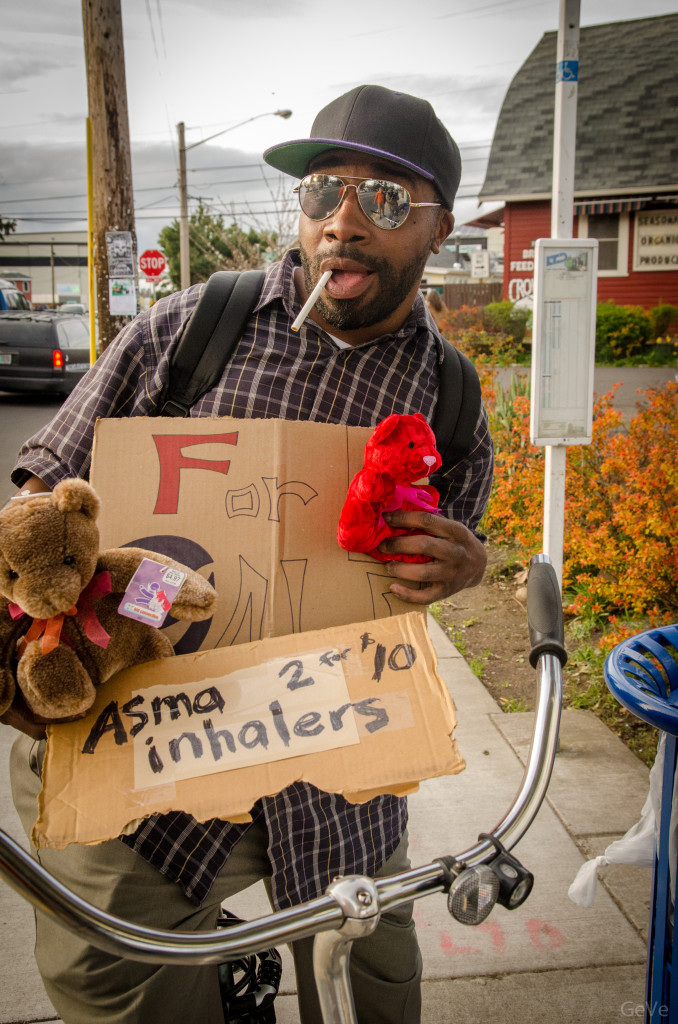
Tom is diabetic, asthmatic, and broke. He’s back for a checkup.
“I take my Metformin every morning with my grits,” he says, “but I don’t need no refill. I just got me some Metformin XR.”
“How did you get extended release? They’re super expensive.”
“Well, my neighbor runs a tattoo shop. We live behind her store. Her doc switched her up to insulin, so she gave me her old meds—a big sackful in the alley. That’s gonna last me another year.”
Prescriptions dispensed behind a tattoo parlor? Wow. I’m constantly impressed by my patients’ ingenuity. One gal this week told me she’s on her deceased grandfather’s antidepressants. Another gets his pharmaceuticals from the farm supply store. I’m just glad to know he doesn’t have fleas.
“Are you good on your inhalers?” I ask.
“Well, the cheapest inhaler is 52 bucks. So I basically can’t afford to breathe. On Craigslist, I found some for ten bucks. I contacted the guy, and he met me at the Walmart gas station in a black Jaguar. I went to the door. He asked if I was Tom. Then he said, ‘You know this is illegal.’”
“Then what?”
“He let me in the car and he opened up a box. Each inhaler was in an individually sealed silver pouch. I took all twelve and handed him 120 bucks. Said he could use the money ‘cause him and his wife split up. He was wealthy. When his wife left him, he just ended up with the car. And the inhalers he got through her insurance. Wouldn’t a done him any good to use ’em, ‘cause he was smoking cigarettes.”
As I refill his meds—the ones he didn’t get in a back alley or from a Craigslist drug deal—he says, “You know what illegal means?” He pauses. “Illegal’s a sick bird.”
“What?” I ask.
“Illegal just means an ill eagle.”
Pamela Wible, M.D. is a family doctor is Oregon. Watch her TEDx talk here. Photos by GeVe. To protect patient privacy, a professional model has been used in the photograph.
***
So you think your medicine is natural. Ever wonder what’s inside? A product can be labeled “natural” if the main ingredient is from an animal, plant, or mineral. Arsenic, horse urine, and cow brain are natural. But are they natural for you?
Here are four drugs whose origins may surprise you:
Insulin was discovered in 1922. Until the 1980s, all insulin was “natural”—collected from the pancreas glands of slaughtered cattle and pigs. Now we have a limitless supply of synthetic human insulin that works well for most people. Plus no risk of mad cow disease. Maybe human insulin is more natural for humans.
Estrogen was discovered in 1929. First on the market was Emmenin—estrogen from the urine of pregnant women. In the 1940s, human estrogen was replaced with a cheaper source—pregnant mares’ urine, Premarin, a combination of multiple horse estrogens. Although Premarin was the #1 prescribed drug in the United States during the 1990s, it’s now linked to cancers, strokes, and heart attacks. Today synthetic estrogens are derived from soy and yam extracts. They are bioidentical—identical in structure to human estrogen—and likely have similar health risks as other estrogens. So what’s natural? Factory-farmed horse urine? Yams in a lab? Or maybe a graceful menopause?
Thyroid pills are prescribed as either natural pig thyroid or synthetic human thyroid. Pig thyroid has been used for more than 100 years, while synthetic thyroid has been available since the 1950s. Today, pharmacies offer bioidentical thyroid hormones exactly as your body produces them. Recently, a Jewish woman with a history of domestic abuse wanted me to refill her “natural” thyroid. I asked her if it made sense for a battered Jewish mother to take slaughtered pig thyroid? She didn’t think so. Now she’s doing well on synthetic thyroid, which she considers more natural.
Melatonin—a hormone that regulates sleep—is secreted by the human pineal gland, located in the center of the brain. Melatonin was first isolated from bovine pineal gland in 1958. Supplements (available since the 1990s) are either synthetic human melatonin or “natural” from slaughtered cattle. Swallow the pineal gland from the center of a cow’s brain if you like. But why risk mad cow disease and bad karma when your own pineal gland secretes melatonin right into your bloodstream? Your pineal gland produces ten times more melatonin at night than during the day and what’s leftover is excreted through your urine. If you want a 100%-natural melatonin supplement, follow the ancient practice of Indian yogis and drink your first-morning urine prior to meditation or just before your next power nap. Yum. Still confused about what’s natural for you? Let’s ask our consultants:
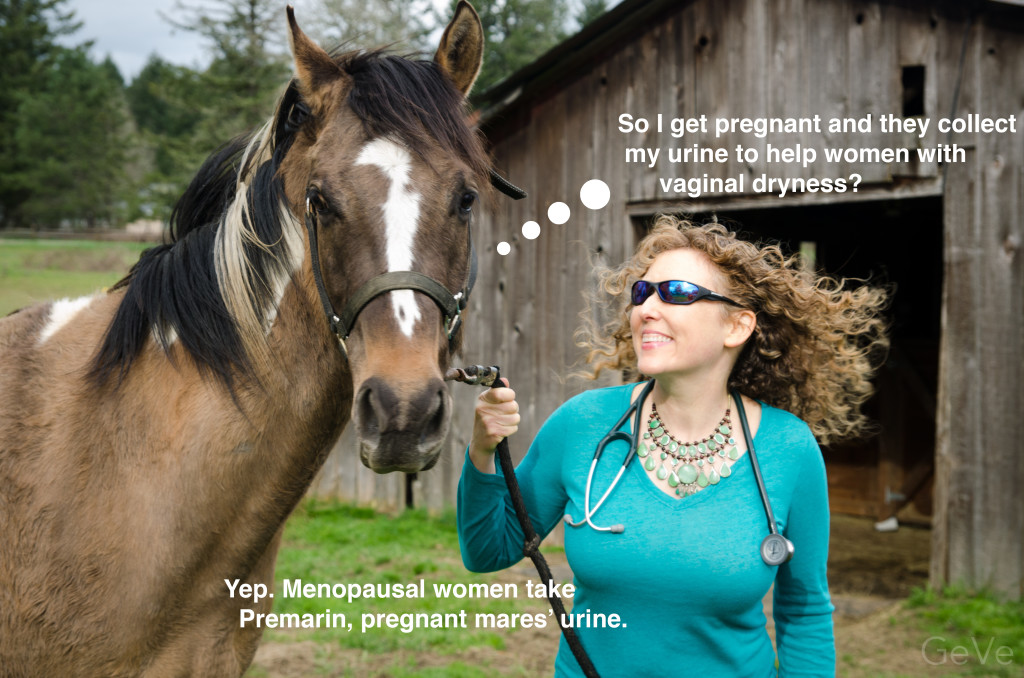
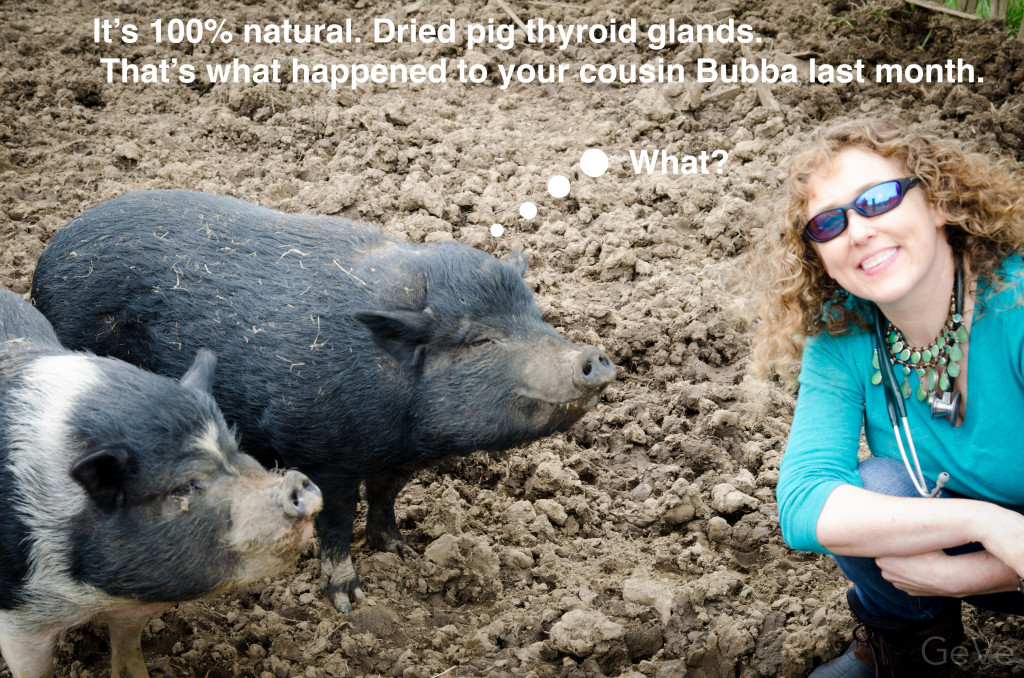
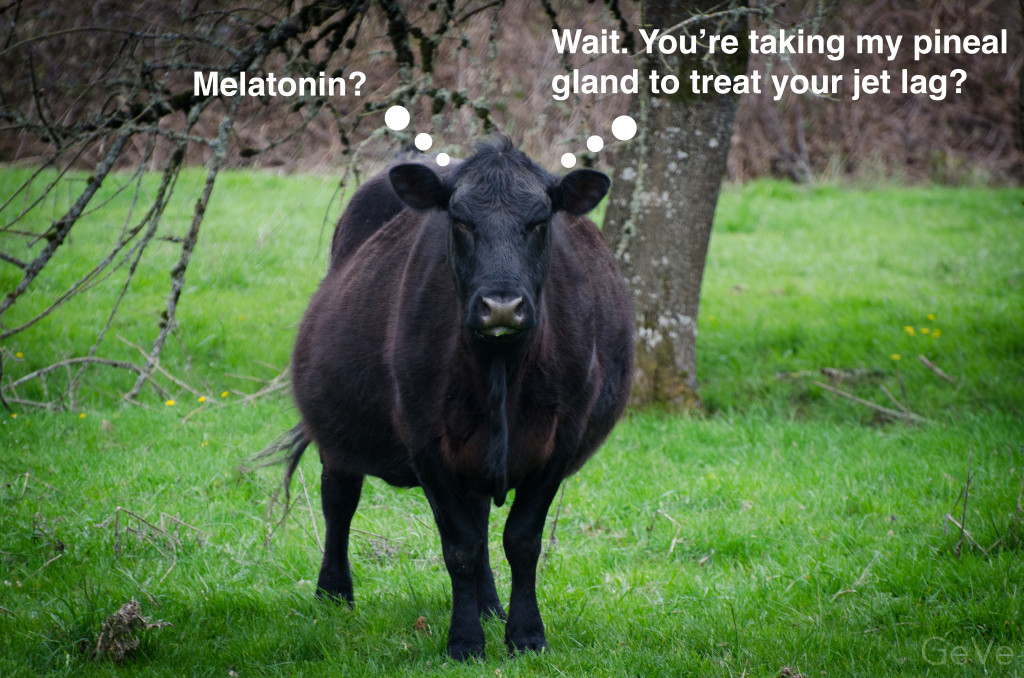 Pamela Wible, M.D., is a family physician in Eugene, Oregon, and author of Pet Goats & Pap Smears. Watch her TEDx Talk “How to Get Naked with Your Doctor.” Photos by Geve.
Pamela Wible, M.D., is a family physician in Eugene, Oregon, and author of Pet Goats & Pap Smears. Watch her TEDx Talk “How to Get Naked with Your Doctor.” Photos by Geve.
***